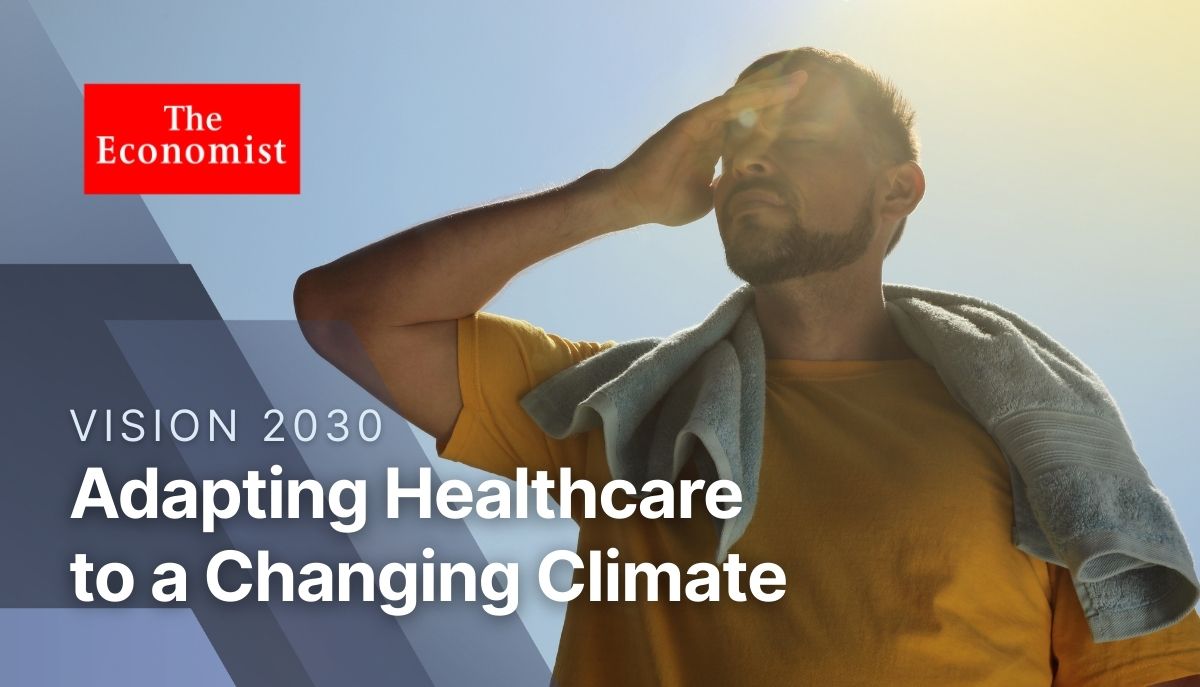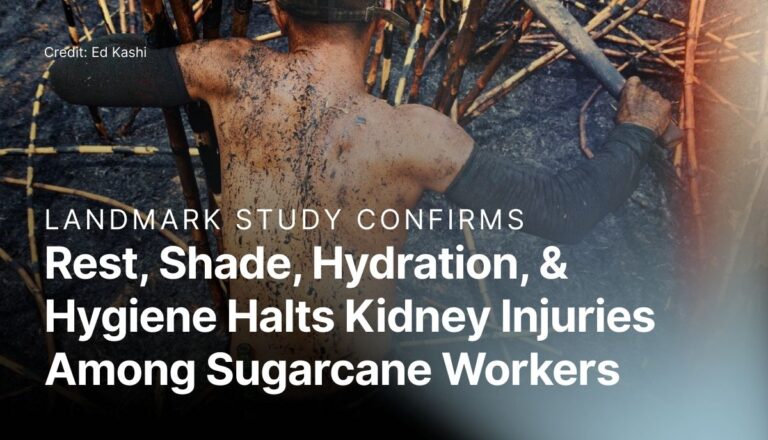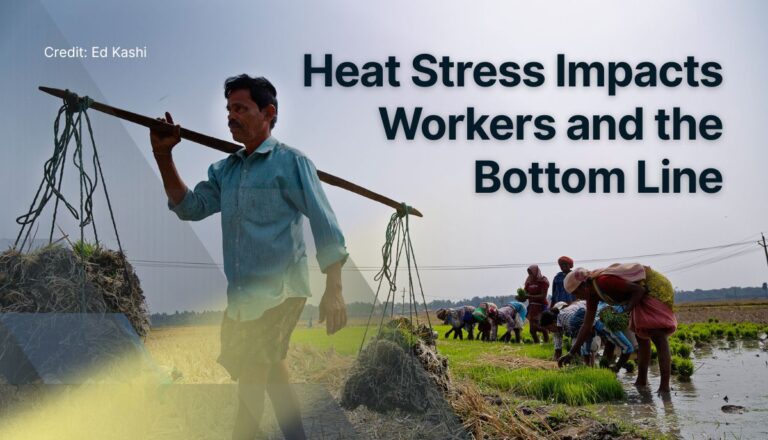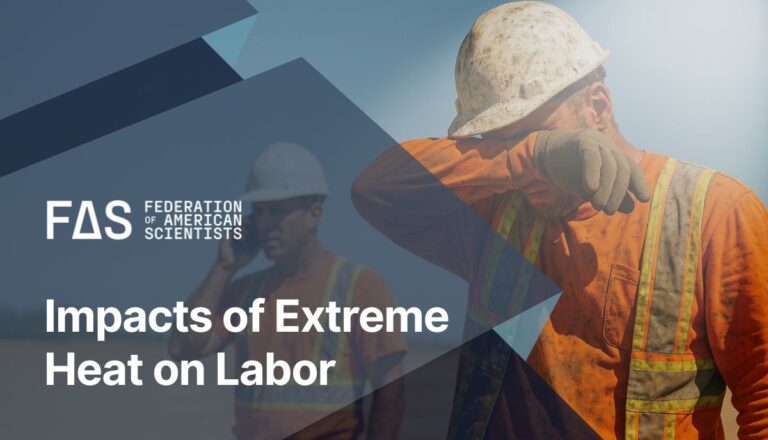Vision 2030 and Protecting Workers on the Frontlines
Economist Impact lays out a bold roadmap for tackling urgent health challenges at the intersection of climate change and chronic disease, consulting La Isla Network for its expertise on chronic kidney disease among workers.
Globally, workforces are subject to harsh environmental conditions that are expected to deteriorate their health, rippling to entire industries and economies, per the ILO. Extreme heat is a chief culprit.
- 2.41 billion workers worldwide are exposed to excessive heat, or 71 percent of the global working population.
- Todos os anos, o calor excessivo resulta em 22,85 milhões de ferimentos e 18.970 mortes no trabalho.
- Em 2020, havia 26,2 milhões de pessoas vivendo com doença renal crônica atribuível ao estresse térmico no local de trabalho em todo o mundo, constituindo aproximadamente 3% de todos os casos de doença renal crônica.
Economist Impact’s Vision 2030 report outlines practical, evidence-based strategies to protect millions of people worldwide living with cardiovascular, renal and metabolic conditions. Together, these diseases account for five of the top 12 causes of death globally.
The report proposes action in adapting treatment and management plans, enhancing healthcare delivery, greening health systems, raising awareness and improving research and data.
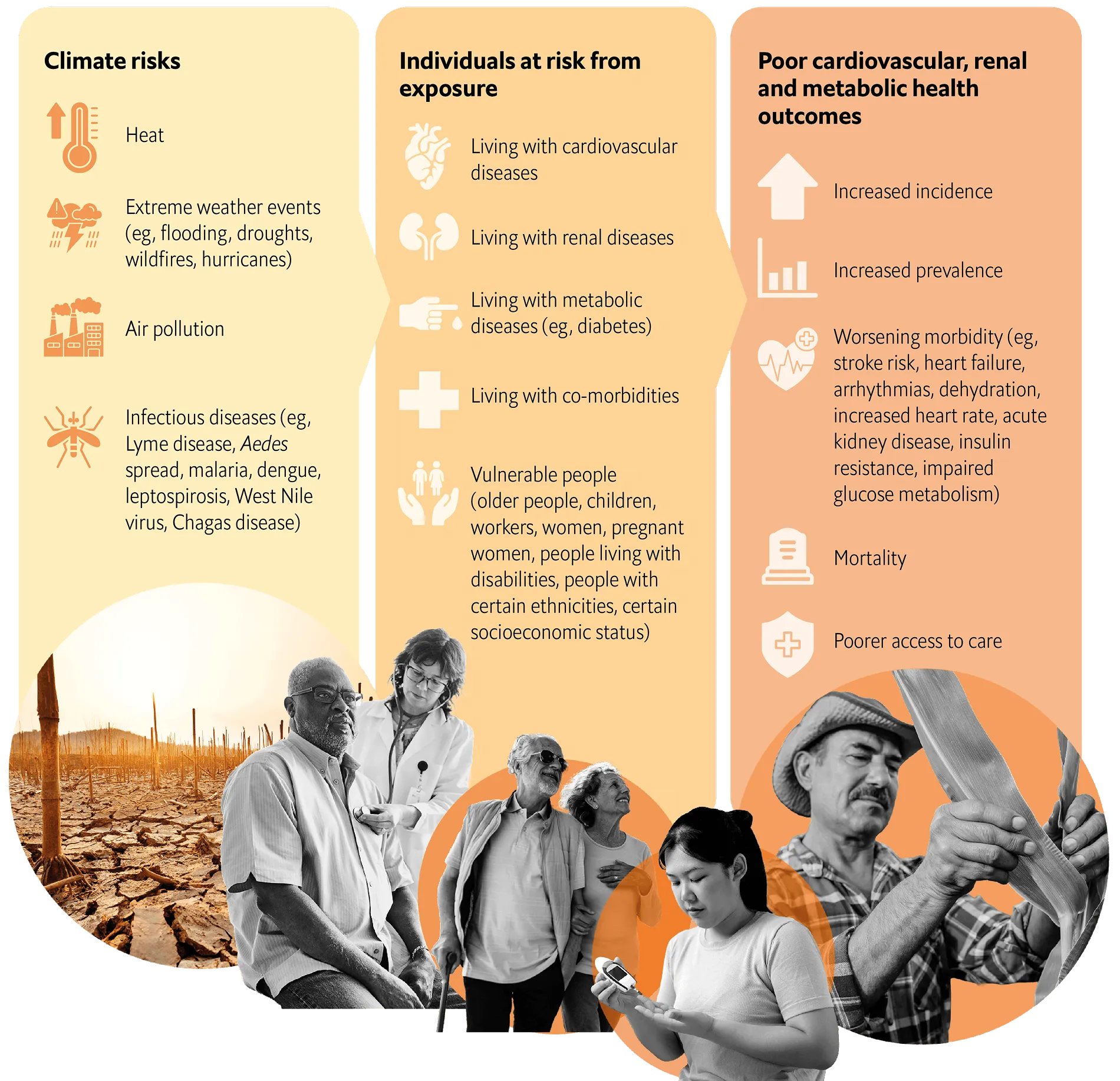
The Worker Safety Connection: La Isla Network’s Contribution
One of the report’s most compelling case studies features the work of La Isla Network (LIN), led by CEO Jason Glaser. LIN has become a global leader in addressing chronic kidney disease of non-traditional origin (CKDnT), a condition devastating agricultural and other outdoor labor forces in hot climates. CKDnT is often driven by extreme occupational heat stress — a risk the report identifies as a direct link between climate change and surging kidney disease rates.
Glaser’s research and advocacy highlight the scale of the problem: in some Latin American and South Asian agricultural communities, 8–30% of working-age men may have CKDnT, up to eight times the expected rate. Grueling work under extreme heat without adequate rest, shade or hydration is to blame.
The Adelante Initiative: Proven Protection with Big Returns
To address this, La Isla Network created the Adelante Initiative in Nicaragua, later expanding through the U.S. government-funded PREP program to other Central American countries. These interventions — scheduled rest breaks, portable shade tents, hydration stations, and hygiene measures — were simple, low-cost and transformative.
The results speak volumes:
The Adelante Initiative: Proven Protection with Big Returns
Reduction in heat-induced acute kidney injury within the first year
Reduction within two years
Productivity boost, even accounting for break times.
ROI over three years, showing that protecting workers’ health can also make economic sense
This approach aligns perfectly with Vision 2030’s emphasis on prevention, equity, and multisectoral cooperation, serving as a model for industries worldwide facing similar risks from rising temperatures.
A Global Framework with Local Lessons
The report makes clear that success will require collaboration far beyond the health sector — engaging employers, labor organizations, environmental agencies, and governments. La Isla Network’s work shows what’s possible when diverse stakeholders align around a shared goal: safer, healthier, and more productive workforces, even in the face of accelerating climate change.
In short, Vision 2030 is not just a blueprint for healthcare adaptation — it’s a call to action. And thanks to the work of organizations like La Isla Network, we already have proof that targeted, collaborative interventions can save lives, strengthen economies, and build resilience where it’s needed most.
La Isla Network is a health research and advisory organization dedicated to ending heat-related injury, illness and death among workforces worldwide. We develop data-driven worker protection interventions and conduct management of change, improving the resiliency of workforces and businesses to the risk of heat exposure. LIN drives lasting change by working with governments and multilateral institutions to inform and create policy. For more information please use our formulário de contato.

